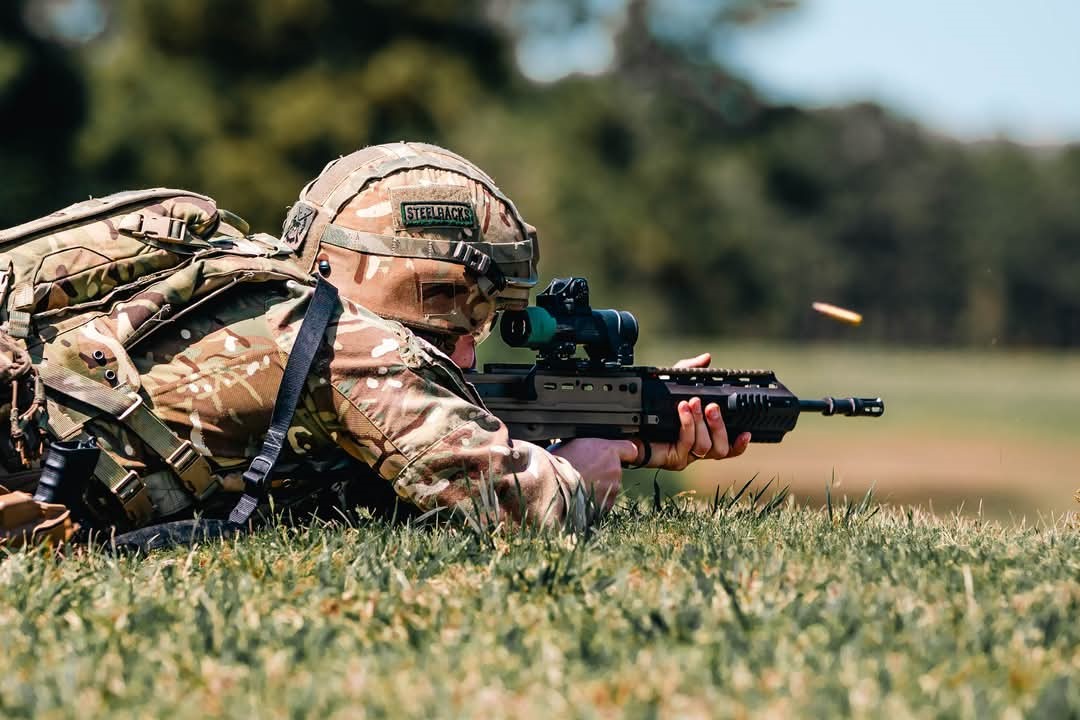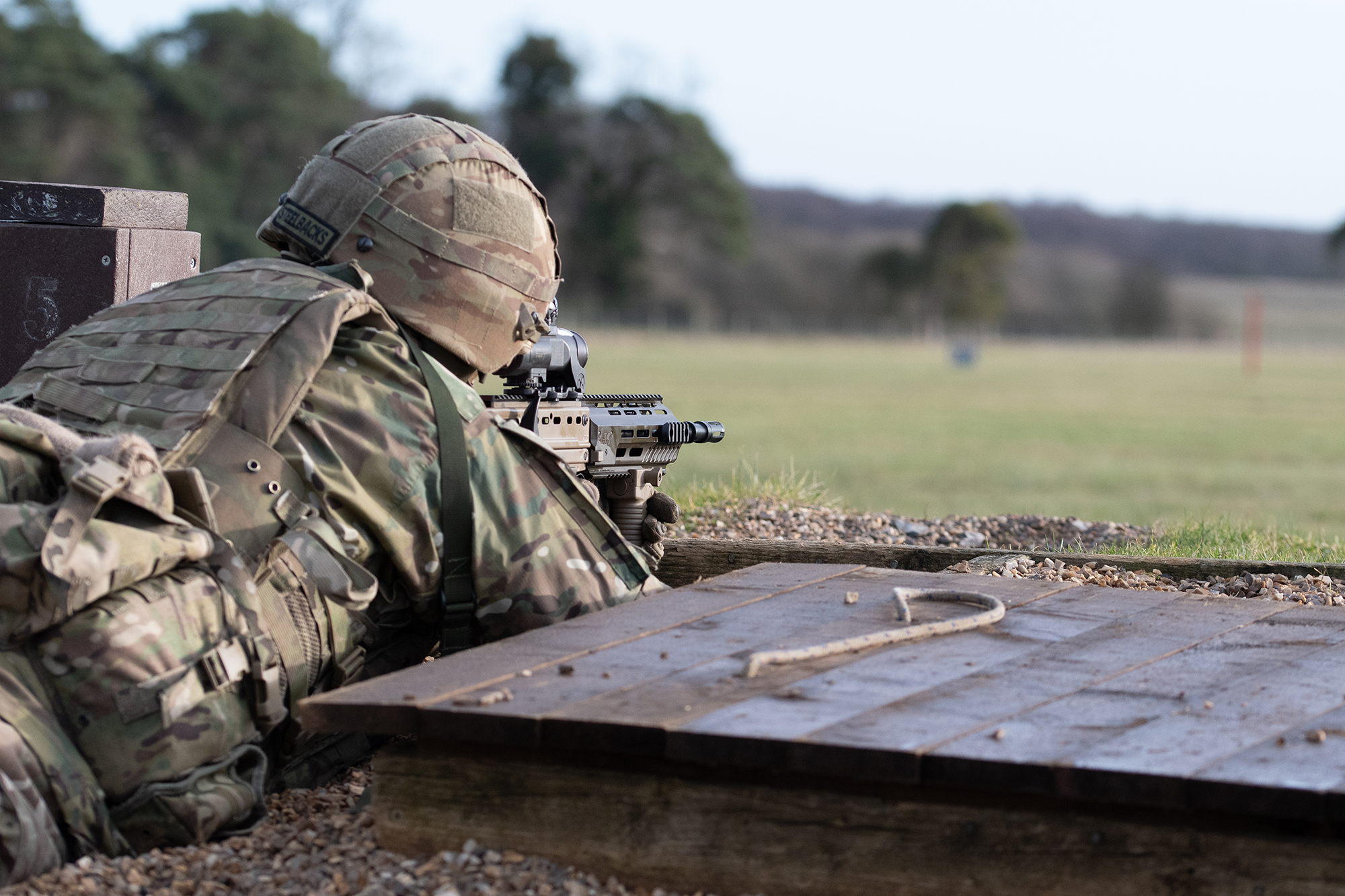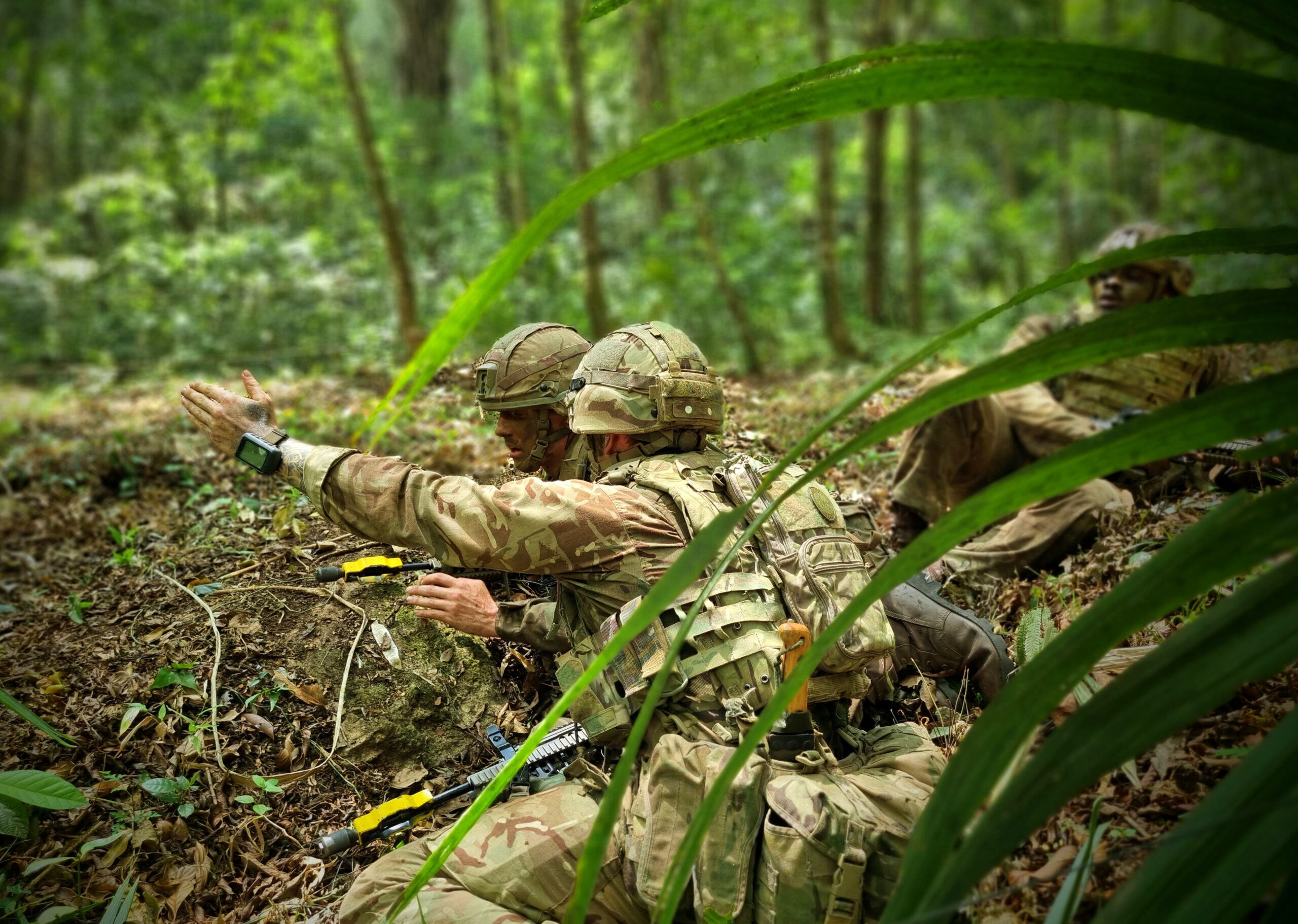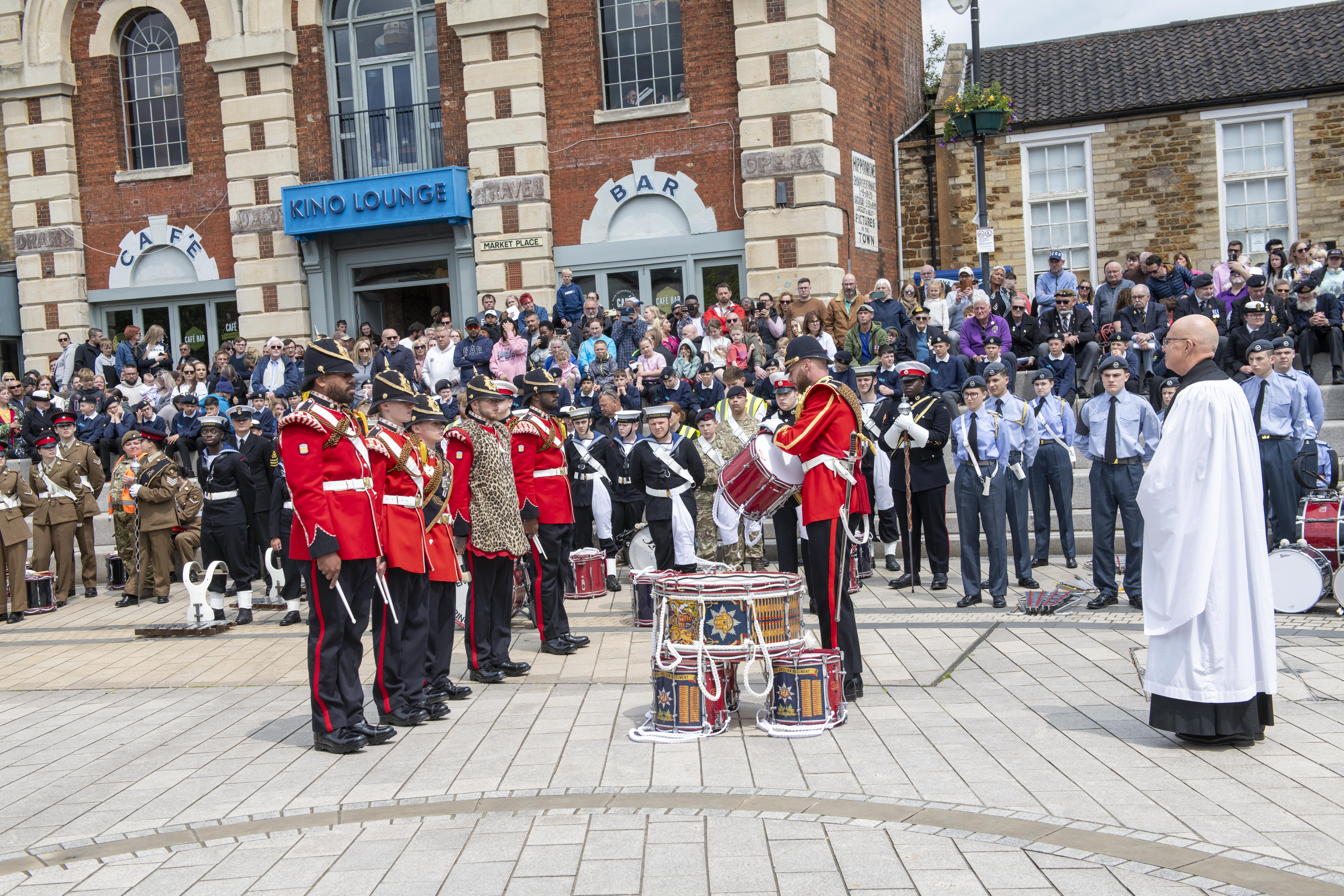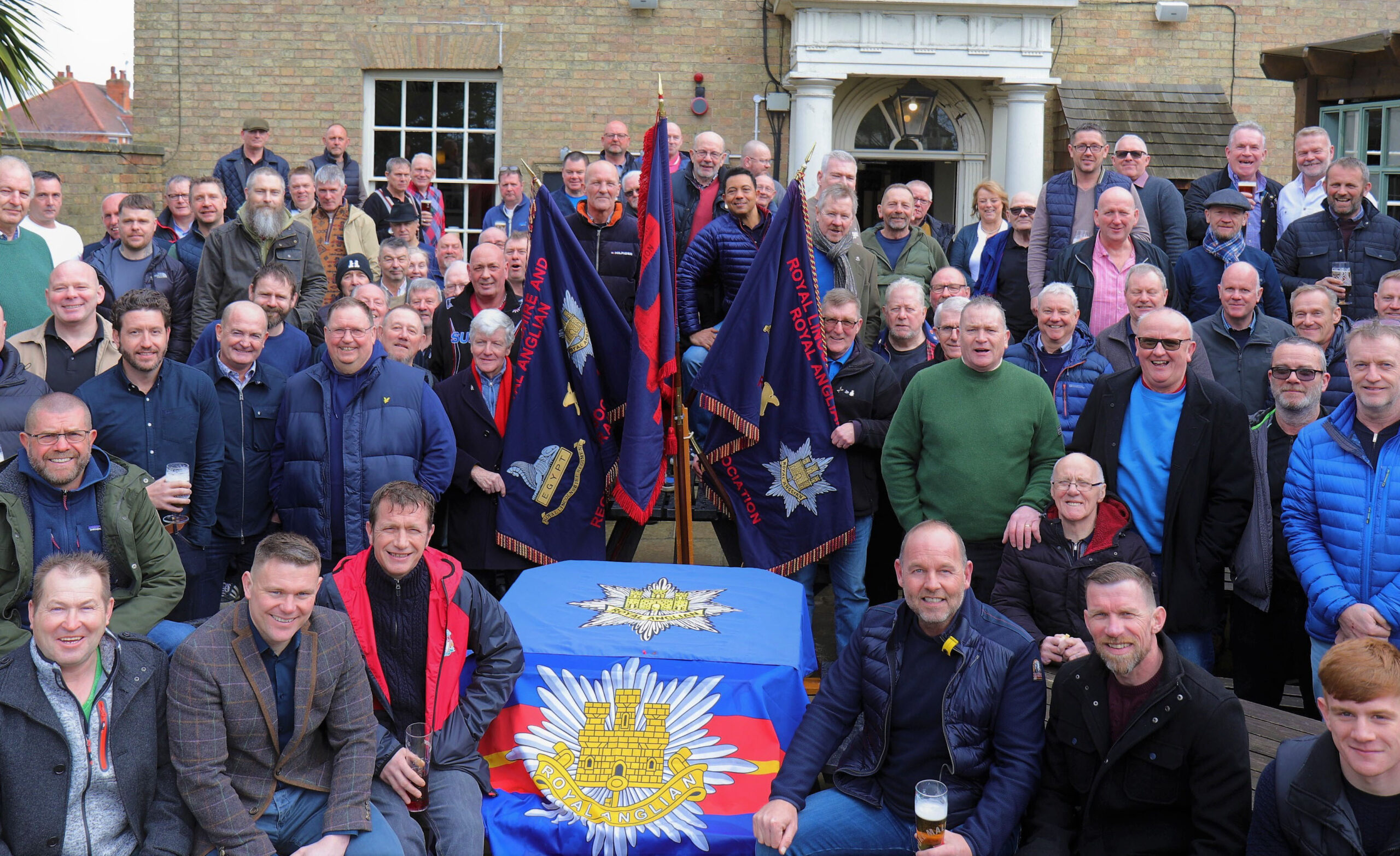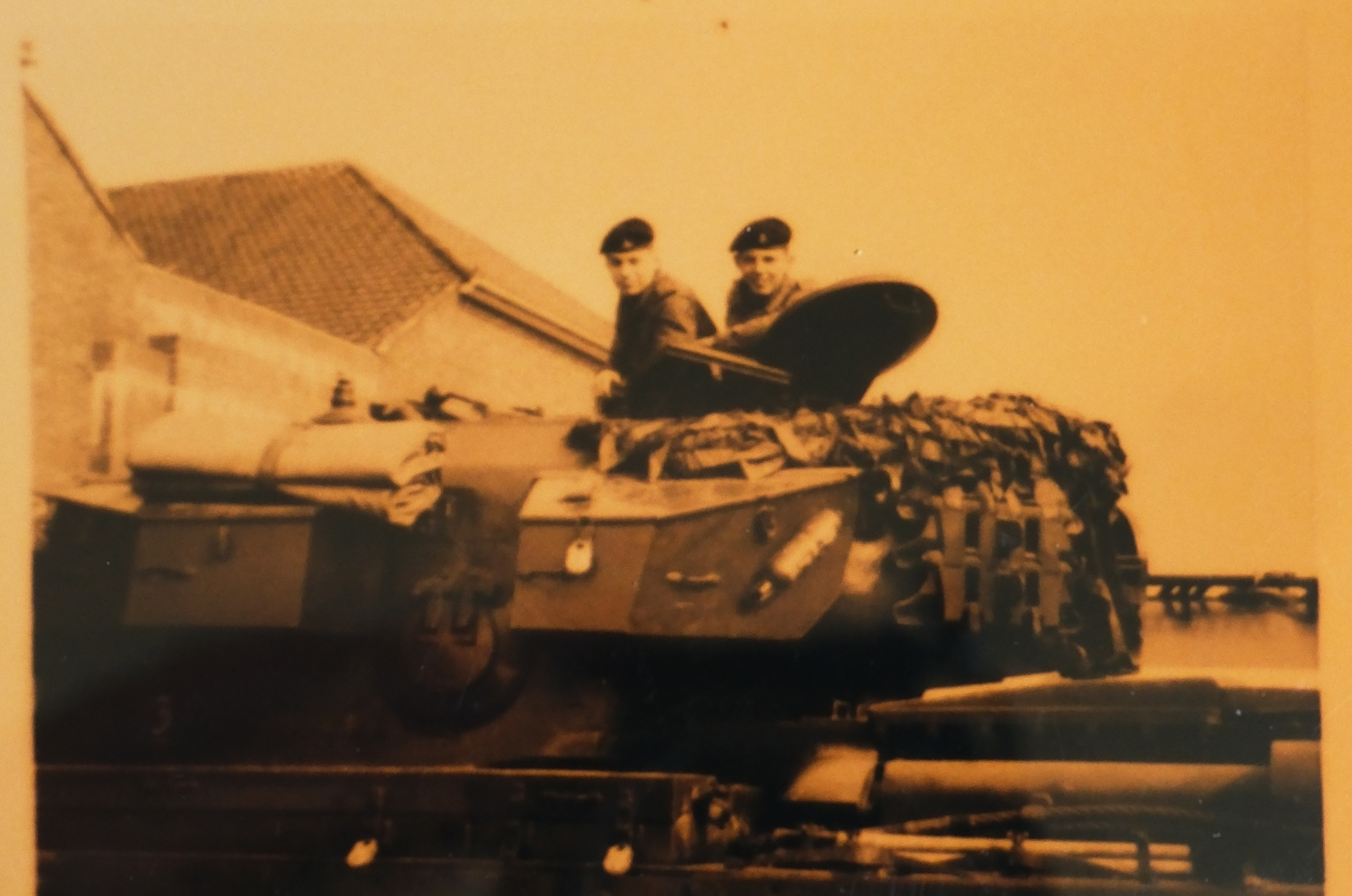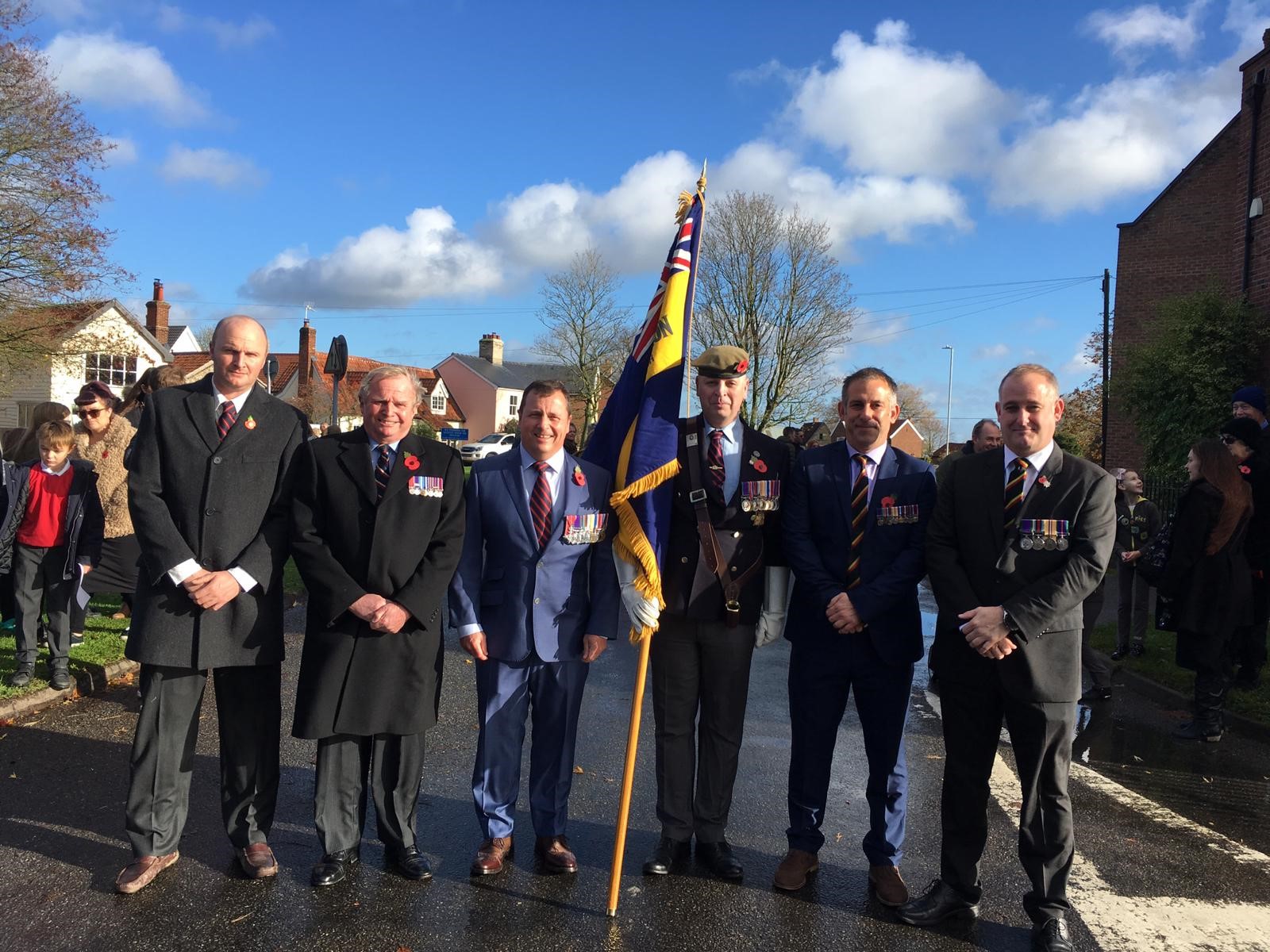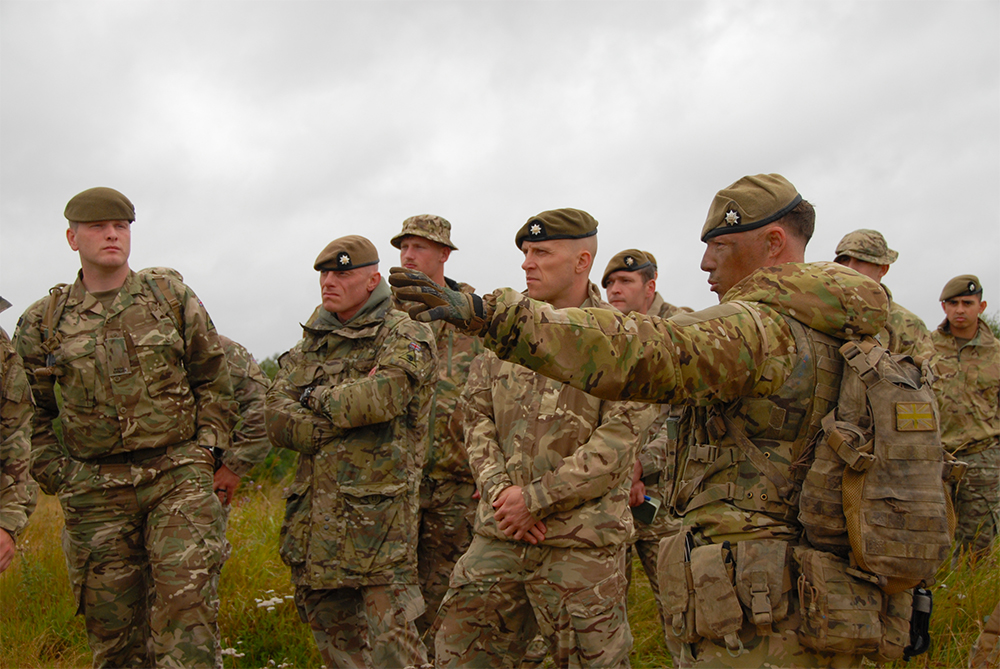
Obituary for Major Ken Mayhew
Major Ken Mayhew died peacefully at home on the 13 May 2021 aged 104. He was born on 18 January 1917 in Helmingham, Suffolk, and educated at Framlingham College. A keen sportsman he played cricket, hockey and squash representing his school, the Suffolk Regiment and County. At the age of 70 he took up golf, continuing to play into his nineties, at the age of 97 still carrying his clubs.
He joined the Territorial Army in April 1939 and was commissioned into The Suffolk Regiment in May 1940, reporting to the Depot in Bury St Edmunds. There he was ordered to collect 150 recruits from Warley and take them to the 1st Battalion in Somerset to join the remnants of the battalion who had just escaped from France at Dunkirk.
Once the threat of German invasion had passed the battalion started training as one of the assault divisions for the eventual liberation of France. Three and a half years later Ken landed with 1 Suffolk in Normandy on D Day. By then he was a Captain commanding the carrier platoon. He served continuously with the battalion until February 1945 apart from three weeks recovering from wounds.
In Normandy he took part in the battles for Hillman on D Day, Chateau de La Londe and the Tinchebray crossroads, the battalion suffering heavy casualties in the latter two. On 16th August commanding three sections of his carrier platoon “Ken Force” he was part of the vanguard to liberate the town of Flers, subsequently receiving the Freedom of Flers from a grateful town.
Following the airborne and ground operation to capture Arnhem, Market Garden, in September, Ken with his carrier platoon was continuously forward of the allied front line gathering intelligence on new German positions, often accompanied by members of the Dutch Resistance. In the battle to liberate Weert he courageously and deliberately drew enemy fire on several occasions to locate enemy positions on the far side of the Wessem-Nederweert canal so that they could be neutralised by allied fire. This included firing on a German position guarding a railway bridge over the canal. Accurate and sustained machine gun and mortar fire forced them to retire through a hail of bullets and shrapnel.
He was then at the forefront of the heavy fighting to liberate Overloon and Venray in October 1944 when he was wounded in the face. His Commanding Officer wrote:
“He distinguished himself particularly in the attacks on Overloon and Venray. Just before these two battles, in which the battalion suffered heavy casualties, Major Mayhew took over a rifle company. He proved himself a magnificent and courageous company commander, showing a contempt for his own safety which shortly was to win for him the admiration of every man under his command.
When the infantry crossed the Molenbeek on the way to Venray the tanks in support of the operation were not able to cross the stream owing to the treacherous nature of its banks. Without hesitation Major Mayhew decided to continue the advance, which was by this time becoming increasingly difficult, owing to enemy small arms, mortar, and shell fire.
He pressed forward, encouraging his men, doubling from platoon to platoon to give out orders rather than send for his platoon commanders, for the enemy was contesting every yard of the way.
At this point Major Mayhew was wounded. In less than three weeks however, he was back with the battalion, before he was fully recovered. He remained a constant source of comfort and inspiration to his officers, NCO’s and men during the long winter months spent on the banks of the river Maas.
His tall figure, proceeding unconcernedly from man to man under most dangerous conditions in action have won for him a place of admiration and respect achieved by few in North West Europe.”
He was wounded a second time approaching the river Rhine in February 1945 and evacuated to England.
On the 24th of April 1946, by Dutch Royal Decree, Major Ken Mayhew was appointed Knight (4th class) of the Dutch Military William Order. This is the highest award for gallantry in Holland and equivalent to the Victoria Cross. The award states “By distinguishing himself during the battles leading to the liberation of the occupied territory of the Netherlands through the exercising of excellent deeds of valour, conduct and allegiance. Through all this having repeatedly shown an extraordinary devotion to duty and great perseverance, and in all aspects having been a laudable example, an inspiration for everybody in those glorious days”.
After the war Ken returned to civilian life and built-up successful grain and transport businesses. He maintained close contact with his Suffolk Regiment comrades, but lost contact with the Dutch authorities over the years. He was not a man to seek the limelight, and spoke little of his exploits, preferring to emphasise the role of others. Then on 18th September 2011 whilst attending the annual Commemoration Service in Venray, his Dutch medal for gallantry was recognised by a local historian. Since then, the close bonds and friendship have been restored between Major Mayhew and the Dutch Military William Order in honour.
He is survived by his wife “Trish”, his mainstay and support for 40 years, and family.


